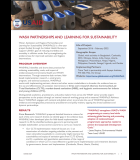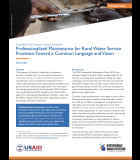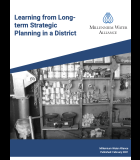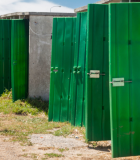Integrated Community Based Water Supply Sanitation and Hygiene WASH
In Ethiopia, despite increases in water supply and sanitation coverage in rural areas and a favorable policy environment, only an estimated 30% of the rural population had basic drinking water service, and as few as 4% had basic sanitation in 2015 (WHO/UNICEF Joint Monitoring Programme). As assessed by UNICEF Ethiopia, 60-80% of communicable diseases are attributed to low levels of access to safe water and inadequate sanitation and hygiene services, while poor WaSH is a major contributor to mal- and undernutrition[1].
With its large-scale rural Community-based Nutrition and Integrated WaSH Program, jointly implemented with the Government of Ethiopia (GoE), UNICEF Ethiopia aimed to address the combined risks of chronic malnutrition and poor access to basic WaSH services for 1.4 million people living in 30 woredas (districts) in four regions in Ethiopia, between 2011 and 2015.
Activity Description
Researchers at the Water Institute at UNC, in collaboration with Jimma University, supported UNICEF Ethiopia with collection, analysis and reporting of data from 2,650 rural households, 2,400 children under age five, and 75 communities, and WaSH committees in WaSH intervention and control areas.
The Water Institute’s collaboration and the baseline and midline results will help UNICEF Ethiopia to strengthen national WaSH systems, target program improvements, and allow them to measure their program outcomes and impacts.





